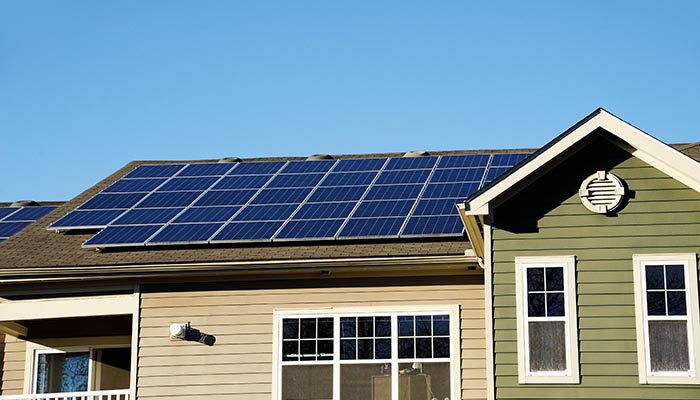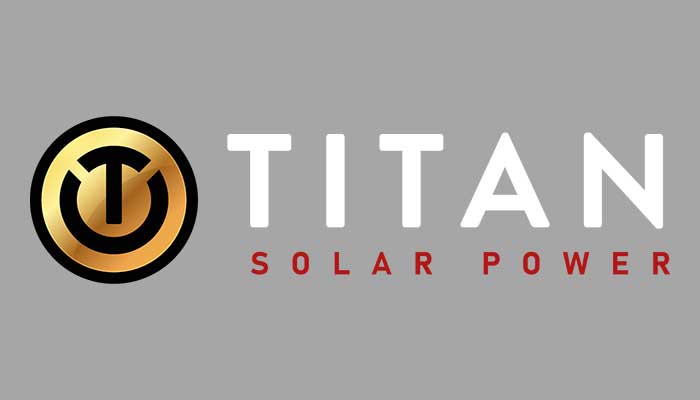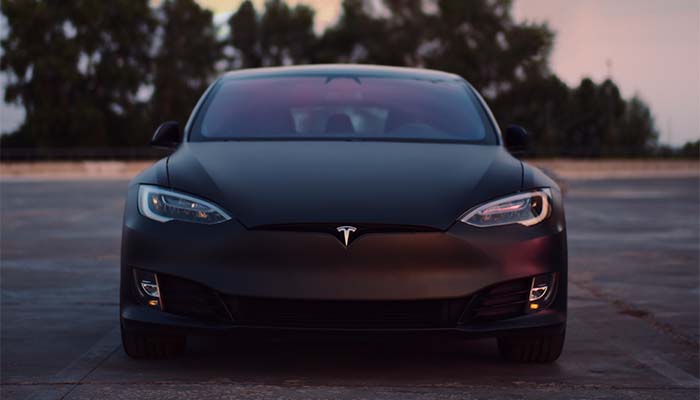
Updated December 19, 2021
When you modify your home or add a feature, you may or may not see any increase in value. Take an in-ground pool for example. It can be a great luxury and a source of fun, but it also adds to the cost of ownership. As a result, you can spend a fortune installing one, only to see zero increase in your home’s value.
Solar panels, on the other hand, are a different story. Once you’ve paid to have them installed, they save you money every month. If you sell your house, the new owner will continue to reap the savings, which lowers the home’s cost of ownership. As a result, you can expect your property value to go up.
But how much value can you reasonably expect to gain? And are there any exceptions to the rule? Here, we’ll discuss everything you need to know about solar panels and property value.
How Much Home Value Will Your Solar System Add?
Let’s start with the basic math. How much value will a new solar system add to your home? According to the National Renewable Energy Laboratory (NREL), you can expect your home’s value to increase by $20 for every $1 your solar panels save you on your annual energy costs.
For example, let’s say your solar system saves you an average of $1,000 per year. That system would add approximately $20,000 to your home’s value.
Another way to look at things is to look at the percentage increase in home value. According to a 2019 Zillow study, homes with solar panels have a 4.1% higher sales price than comparable homes without panels. In the study’s sample, that translated to an average increase of $9,274.
As you might expect, this varied substantially by region. For example, homes in Riverside, California saw an average increase of $9,926, a higher dollar amount than the national average. But home prices in Riverside are substantially higher than the national average, so the average percent increase was only 2.7%.
To put Zillow’s numbers in perspective, another NREL study showed an increase of 17%. The same study also showed that homes with solar panels sold 20% faster than comparable non-solar homes. These numbers are from 2006, so they’re a bit out of date, but they demonstrate the potential benefit from installing solar panels on your home.
Homebuyers Care About the Environment
Green homes are becoming more and more attractive to prospective homebuyers. According to Zillow senior economist Sarah Mikhitarian: “There is increased demand for green living. More than 80% of buyers now say energy-efficient features are important in selecting their home. We are increasingly finding that these attributes are important to prospective homebuyers. This is part of the reason that there is a premium associated with it. The other piece is that there is true value provided by solar panels — namely, future energy savings.”
Energy savings can vary from home to home. Obviously, a larger solar system is going to produce more energy than a smaller system. But savings can also depend on how you use your electricity. If you have electric floor heating, for example, you’re liable to see more savings than if you use natural gas for heat.
Solar power systems are most well known for reducing your annual CO2 emissions. However, they also reduce your emissions of other harmful chemicals like sulfur dioxide and nitrogen oxide. These are both toxic pollutants and can cause respiratory diseases and heart disease. The average solar system reduces sulfur dioxide emissions by 80 pounds per year, and nitrogen oxide emissions by 50.
Solar-powered homes offer two major benefits for prospective buyers. From a financial perspective, it means they save money on their monthly power bill. And from an ethical perspective, they have the squeaky clean conscience that comes from reduced carbon emissions and air pollution.
From the perspective of an existing homeowner, the financial benefits are also clear. Buyers are looking for homes that use clean energy. If you can give them that, your home will likely sell faster, and for more money.
Can Solar Panels Ever Lower My Home Value?
In most cases, the answer is no. Solar panels provide an inherent benefit to the homeowner because they produce energy for only the cost of installation. Since you’ve already paid for the installation, the buyer is basically getting free electricity. That’s a lot of value, and it should be reflected in the selling price.
That said, there are some exceptions. One exception is if your home already has old, very large solar panels. If you’ve got 10- or 12-foot solar panels all over your lawn, many buyers will consider it an eyesore, and won’t even be interested. These older systems are also nearing the end of their useful life, which means the buyer will be on the hook for replacement or removal.
Another potential pitfall is if the buyers don’t want to bother with solar energy. For most people, this isn’t the case, because free power is free power. But some people just want to pay their monthly power bill and forget about it, and these folks won’t see solar panels as a benefit. Since this happens on a one-off basis, it’s tough to gauge the potential impact on your home’s selling price.
The most common exception to the rule is if you’re leasing your solar panels. In that case, the seller would either have to pick up the lease, purchase the panels outright, or return them to the solar company. In the first two cases, the buyer is now paying for the cost of the panels, so they’re certainly not going to pay you more for the house. In the third case, they’re no longer getting the benefit of the solar panels. Again, why would they pay more?
Will Solar Panels Make My Property Taxes Go Up?
One common point of concern is property taxes. Won’t the increase in your home value be offset by the corresponding increase in property taxes? The math can get complicated, especially since property taxes are set at the local level.
That said, there is some good news. Many states are now providing property tax exemptions for any increase in property value due to solar installation. Here are the current exemptions. Keep in mind that individual states can change their laws at any time. Make sure to double-check your state’s regulations before you invest in a solar system.
| Tax exemption type | State(s) |
| 100% exempt | Arizona, Colorado, Connecticut, District of Columbia, Florida, Indiana, Kansas, Louisiana, Maryland, Michigan, Minnesota, Missouri, New Jersey, New Mexico, Oregon, Rhode Island, Texas, Vermont, Wisconsin |
| 80% exempt | North Carolina |
| 100% exempt through 2025 | California |
| 100% exempt for the first 5 years | Iowa, New York, North Dakota |
| 100% exempt for the first 10 years | Montana |
| 100% exempt for the first 20 years | Massachusetts |
| Exempt up to $50,000 or 70% of the total property value, whichever is higher | South Dakota |
| No exemptions | Alabama, Arkansas, Delaware, Georgia, Idaho, Kentucky, Maine, Mississippi, Nevada, Oklahoma, Pennsylvania, South Carolina, Utah, Washington, West Virginia, Wyoming |
| Exemptions in some local jurisdictions | Alaska, Hawaii, New Hampshire, Ohio, Virginia |
| Exemptions for some types of solar systems | Illinois, Nebraska, Tennessee |



